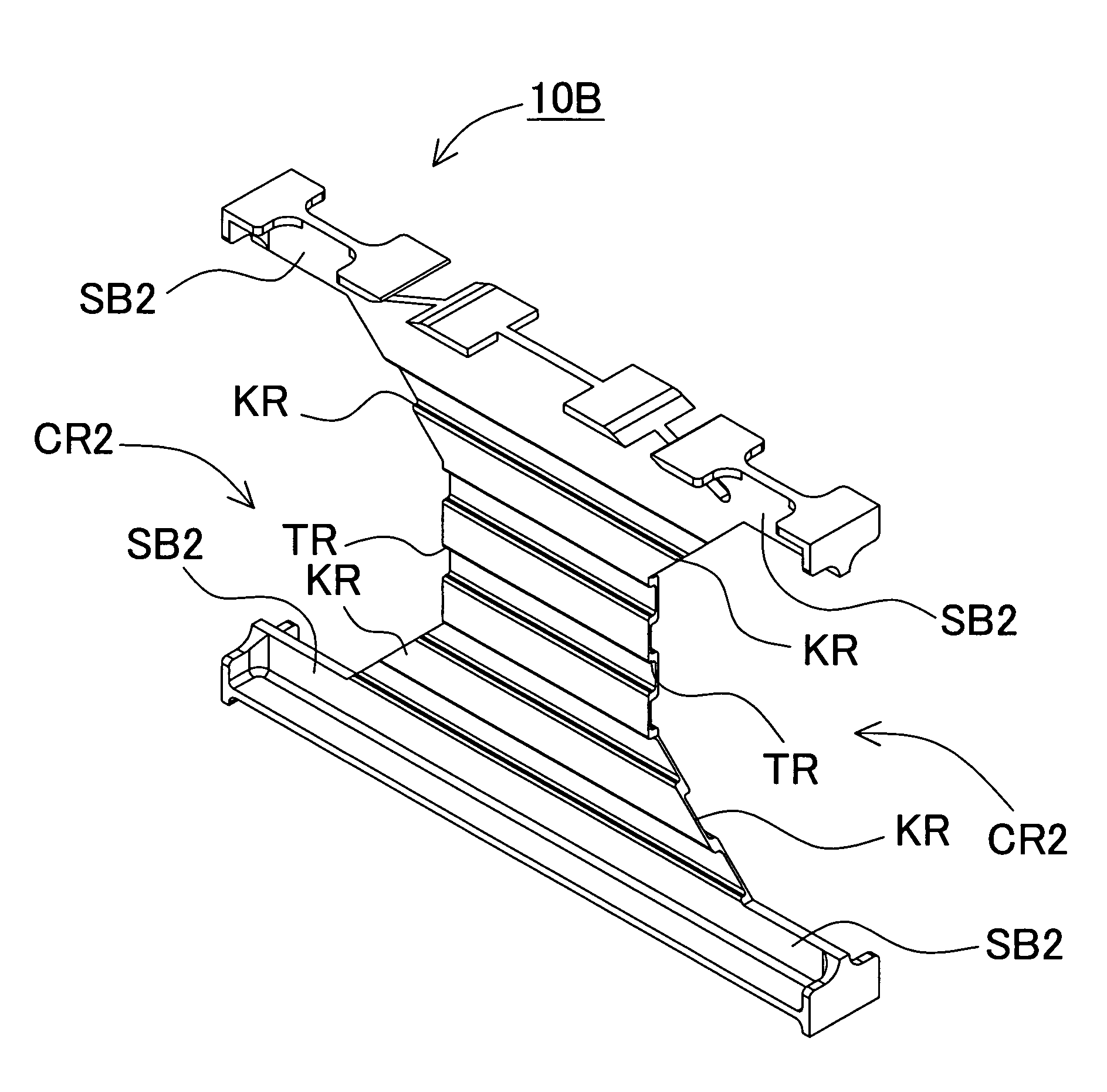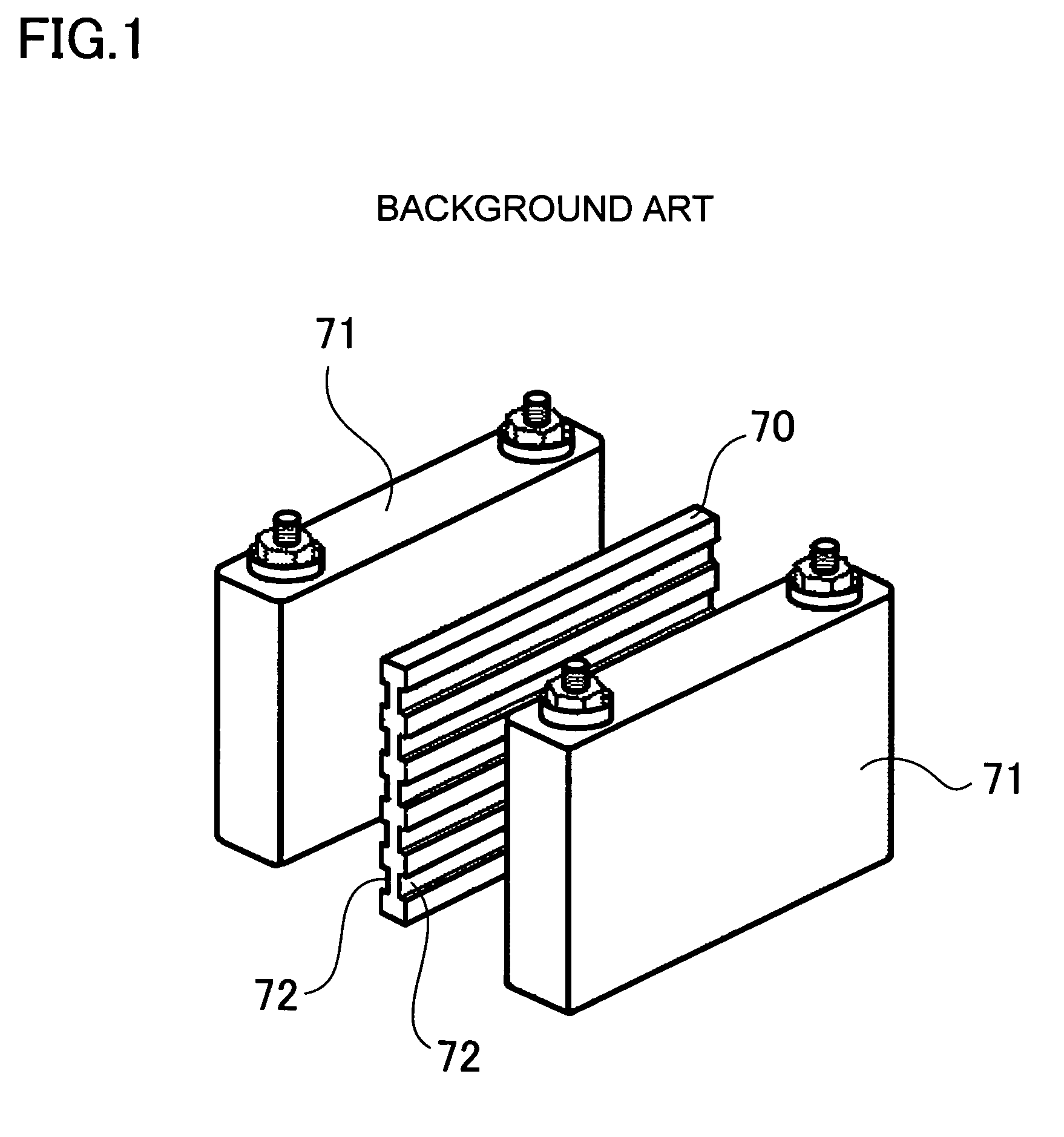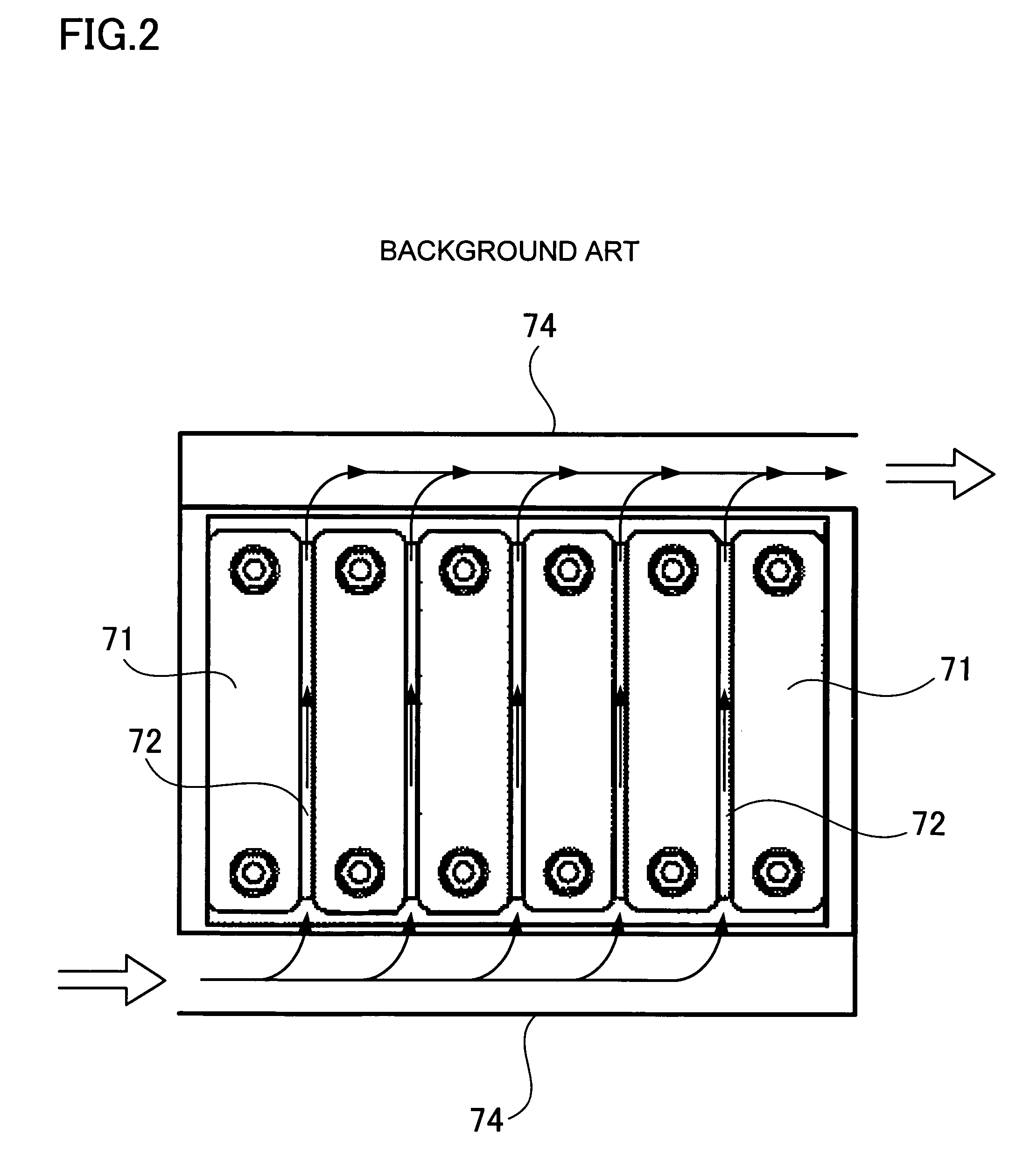Battery pack and battery pack seperator
a battery pack and separator technology, applied in the direction of nickel accumulators, flat cell grouping, primary cell maintenance/service, etc., can solve the problems of inability to achieve uniform cooling, inability to develop temperature unevenness, and tendency to accumulate cooling air, so as to reduce the pressure difference between the input-side and the output-side, and reduce the loss of cooling gas pressur
- Summary
- Abstract
- Description
- Claims
- Application Information
AI Technical Summary
Benefits of technology
Problems solved by technology
Method used
Image
Examples
first embodiment
[0031
[0032]FIGS. 3 and 4 show an exploded perspective view of a battery pack 100 for the first form of embodiment of the present invention and a perspective view of a separator, respectively. For comparison, FIGS. 5 and 6 show an exploded perspective view of a battery pack 500 that uses a prior art separator and a perspective view of that separator, respectively. These battery packs are made up of battery blocks having a plurality of battery cells 1 stacked in the same orientation. Separators 10, 60 are sandwiched between adjacent battery cells 1. Endplates 20 are disposed at both ends of a battery block, and these endplates 20 are held in position, with the battery block in between, by lengthwise retaining rails 22.
[0033]Battery block
[0034]The battery block shown in FIG. 3 is a battery block for use on-board a car. The battery block is configured with a plurality of battery cells 1 and separators 10 stacked alternately and covered at the left and right ends by endplates 20. Specifi...
second embodiment
[0047
[0048]Next, a battery pack 200 for the second form of embodiment is shown in the exploded perspective view of FIG. 7, and its separator 10B is shown in the perspective view of FIG. 8. In the following description, elements that are identical to those of the first form of embodiment are labeled the same and their detailed description is abbreviated. In the second form of embodiment, the cut section CR2 of the separator 10B is further enlarged with a more concave center to give the separator 10B an hourglass shape. Specifically, the separator 10B is configured with corner regions SB2, center regions TR positioned laterally inward from the corner regions SB2, and sloped regions KR joining the corner regions
[0049]SB2 and the center regions TR. In the example of FIG. 8, center regions TR have straight edges and the length of the separator 10B at its center is approximately one-third its height. Here, sloped regions KR also have straight edges. By giving the cut sections CR2 straight...
third embodiment
[0050
[0051]When battery cell swelling is small, even the separator of the second form of embodiment with its laterally narrow center region can maintain insulation between adjacent battery cells and prevent contact between those battery cells. In contrast, when severe battery cell expansion occurs, sufficient insulation may not be afforded by a laterally narrow center region. Consequently, there is concern that battery cells positioned on each side of a narrow separator could contact and short-circuit. In particular, since the battery cell surface carries an electric potential, a configuration is sought that can reliably insulate each battery cell and improve safety. To that end, the third form of embodiment shown in FIGS. 9 and 10 has a separator 10C with a wide lateral center region, which is the inverse of that of the second form of embodiment. Except for corner regions SB3, the left and right edges of the separator 10C are formed as convex (protruding) curves. FIG. 9 shows an ex...
PUM
| Property | Measurement | Unit |
|---|---|---|
| standoff distance | aaaaa | aaaaa |
| distance | aaaaa | aaaaa |
| areas | aaaaa | aaaaa |
Abstract
Description
Claims
Application Information
 Login to View More
Login to View More - R&D
- Intellectual Property
- Life Sciences
- Materials
- Tech Scout
- Unparalleled Data Quality
- Higher Quality Content
- 60% Fewer Hallucinations
Browse by: Latest US Patents, China's latest patents, Technical Efficacy Thesaurus, Application Domain, Technology Topic, Popular Technical Reports.
© 2025 PatSnap. All rights reserved.Legal|Privacy policy|Modern Slavery Act Transparency Statement|Sitemap|About US| Contact US: help@patsnap.com



